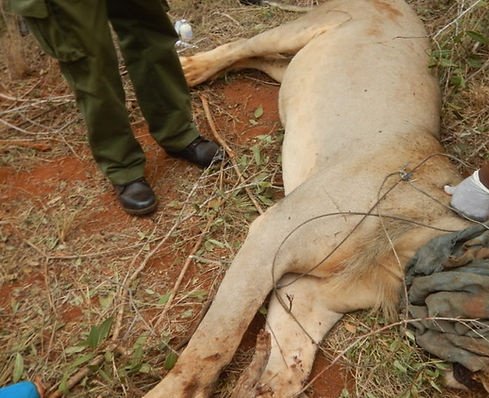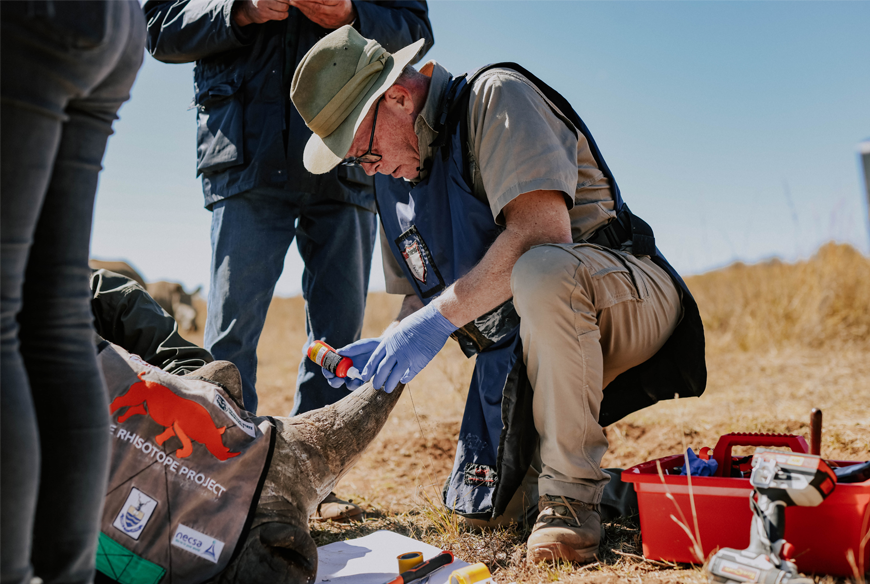A collared lion was discovered poached in Victoria Falls, with its flesh removed and its head and claws missing.
Authorities have labeled this as a deeply troubling instance of targeted wildlife crime. They believe the lion was killed for its body parts, which are highly sought after in illegal wildlife trade markets.
The Zimbabwe Parks and Wildlife Management Authority (ZimParks) has confirmed the tragic discovery, revealing that the lion was being monitored by the Vic Falls Wildlife Trust before its tracking signal suddenly went silent.
Rangers traced the device’s location and found the remains, sparking concerns about a rise in poaching activities in the area.
“We are worried about increased cases of lion poaching, and we will continue to work with the police and other conservation partners to curb this challenge,” ZimParks said in a statement.
During the search, rangers also found a second lion, an adult male trapped in a snare but still alive.
“With the assistance of veterinary doctors, the second lion was successfully treated and rescued from the snare.”
ZimParks has informed the Zimbabwe Republic Police (ZRP) about the incident, and investigations have been launched to identify and apprehend the poachers.
In response, anti-poaching teams in Victoria Falls and rangers in the Zambezi region have stepped up patrols to search for traps and safeguard at-risk wildlife.
“Our teams are actively conducting snare-sweeping patrols within the surrounding areas to protect wildlife,” officials confirmed.
In an October report last year, Down to Earth highlighted concerns from wildlife conservation groups, stating that lion bones are highly sought after in Asian countries like China and Vietnam, where they are used in traditional medicine lacking scientific backing.
According to World Animal Protection, 89% of people in Vietnam believe in the supposed benefits of products made from tigers and lions, despite evidence showing no actual medicinal value.
The report added, “Nearly nine out of 10 consumers in Vietnam prefer big cat products derived from wild animals rather than those bred in captivity.”
In China, the report noted that over 40% of surveyed individuals had used drugs or health products containing big cat derivatives, with more than half of Chinese consumers favoring products sourced from wild animals.





